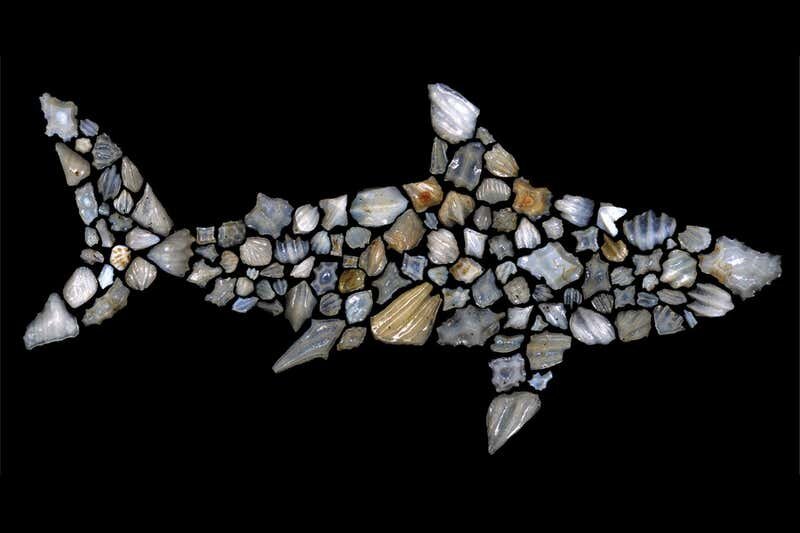How Sharks Faced An Extinction Level Event
Today, we often talk about how the sharks in our oceans are on a precipice, with many on the endangered species list.
However, almost 19 million years ago it has been discovered that sharks almost went extinct, and no one knows why.
It's estimated that shark populations were decimated and that an astonishing 90% were simply wiped out. So, why did time nearly run out for sharks?
Silhouette of a shark composed of fossilised shark dermal denticles (Leah D. Rubin)
Scientists aren't entirely sure why it happened, but through checking sediment samples they have discovered that before this period sharks were in abundance, and after that point. They weren't.
To but that into some sort of context and the sheer magnitude of the near extinction, according to New Scientist that is more than twice the level of extinction that sharks experienced during the Cretaceous-Paleogene extinction some 66 million years ago, which wiped out the dinosaurs.
It wasn't overnight, but the frightening thing is that sharks are facing a much swifter decline today from human actions like overfishing, shark finning and the acidification of the oceans.
The Great White shark, the species featured in the Jaws series (image Euan Rannachan)
US scientists Elizabeth Sibert and Leah Rubin discovered the extinction event while they were studying two ancient sediment core samples collected from the North and South Pacific in the 1980s and 1990s.
There were no known climate changing events at that time, but the scientists are continuing their research to see what else they can uncover.
They are certain though about how the future of sharks remains in our hands. Sibert and Rubin said: "[Ancient] shark communities never recovered from a mysterious extinction event 19 million years ago; the ecological fate of what remains is now in our hands."
FURTHER READING: VISIT OUR DEDICATED SHARK PAGE


